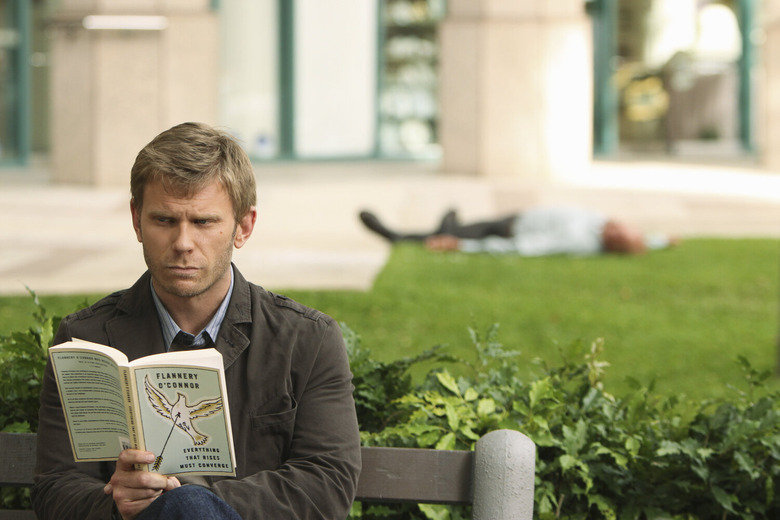20 Years After It Debuted, One Of The Greatest TV Shows Of The 2000s Is About To Hit Netflix
Truth be told, it absolutely boggles my mind that it's been two decades now since Lost debuted on ABC — one of the first TV shows of the modern era that I can remember getting hopelessly addicted to, constantly scouring blogs for recaps and deep dives into the show's lore while also trying to unravel Lost's many captivating mysteries.
For the unaware, Lost was a forerunner of a new golden age of TV, debuting just days before Desperate Housewives and a few months before Grey's Anatomy. Services like Twitter and Reddit hadn't even launched yet. Myspace was still pretty new. We all coalesced around blogs and fan sites to extend our enjoyment of the show, which starts with a plane crash on a mysterious island.
Lost quickly became a must-see hit; one of the biggest, in fact, of the appointment-viewing era. And my suspicion is that it's about to do the same thing, again, only this time for streaming audiences.
All six seasons of Lost are coming to Netflix a little less than a month from now (on July 1). Which means an all-new generation of viewers is about to get hooked on figuring out what the numbers mean, whether Benjamin Linus is good or bad, the mystery of the smoke monster, and what's so special about the island, The Others, and so much more.
The show is way too complex to encapsulate here, but in terms of a general overview: It starts with the crash of Oceanic Flight 815 on its way to Los Angeles from Sydney. The plane breaks apart in midair and scatters its passengers across an island in the Pacific. The show at first seems like it's going to be a straightforward search-and-rescue story, but then it starts to introduce things like a polar bear (yes, a polar bear roaming around an island beach) and hallucinations of dead family members.
Lost is basically a show about the nature of reality, and about the line between science and faith. In unpacking all of the backstories of the characters, the show also gave us an addictive and compulsively bingeable examination of destiny and free will, of philosophy, and of the mind-bending possibilities of time itself.
Because we didn't have social media back when it was on air (it also debuted three years before the launch of the iPhone), Lost's producers got pretty creative with how they kept fans engaged — launching things like webisodes and podcasts, eventually putting full episodes on a new service at the time, a little thing called Hulu.
All these years later, there are still so many episodes and moments from the show that I haven't forgotten and that continue to resonate with me. Episodes like The Constant. Moments like that first interaction we see between Jacob and The Man in Black. And basically anytime Benjamin Linus was on screen.
Put it this way, Lost was so good and so influential that it spawned a completely different show — Manifest, which was clearly influenced by Lost and which on to break all kinds of Netflix viewership records. Lost was also the brainchild of former ABC chairman Lloyd Braun, who basically sat on a beach in Hawaii and pondered how he might turn his vacation into a concept for a TV show. Inspired by Tom Hanks' Cast Away, as well as the reality show Survivor, the idea began to take shape: Crash survivors, each of them strangers, learning how to survive while leaving their pasts behind.
